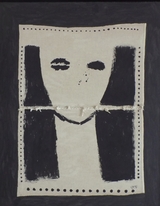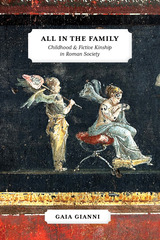
A leading member of the new Afro-Cuban cultural movement, visual artist Juan Roberto Diago (b. 1971) has produced a body of work that offers a revisionist history of the Cuban nation. His “history”—a term he frequently inserts in his works using the visual language of graffiti—is not the official narrative of a racially harmonious nation, built thanks to the selfless efforts of generous white patriots. Diago’s Cuba is a nation built on pain, rape, greed, and the enslavement of millions of displaced Africans, a nation still grappling with the long-term effects of slavery and colonialism. To him, slavery is not the past, but a daily experience of racism and discrimination. Africa is not a root, but a wellspring of cultural renovation and personal affirmation, the ancestors that sustain him in his journey.
In the first examination of Diago’s creative work during his entire career, Alejandro de la Fuente provides parallel English- and Spanish-language text, illustrated throughout. The book traces Diago’s singular efforts to construct new pasts—the pasts required to explain the racial tensions of contemporary Cuba and the pasts of this Afro-Cuban present.

The Image of the Black in Latin American and Caribbean Art is the first comprehensive survey of the visual representation of people of African descent in Latin America and the Caribbean, some twelve million of whom were forcibly imported into the Americas during the transatlantic slave trade. This first volume spans four centuries, from the first Spanish occupation of Latin America and the Caribbean in the fifteenth century; through the establishment of slave colonies on the mainland and islands by the British, French, and Danish; to the revolutionary emergence of independence, first in Haiti in 1804, and then across Latin America. Essays by leading scholars and superb illustrations bring to light a remarkable range of imagery that provides vivid insights into the complex racial history of the period.
The two volumes complement the vision of Dominique and Jean de Menil, art patrons who, during the 1960s, founded an archive to collect images depicting the myriad ways that people of African descent have been represented in Western art from the ancient world to modern times. The Image of the Black in Latin American and Caribbean Art continues the de Menil family’s original mission and brings to the fore a renewed focus on a rich and understudied area.

The Image of the Black in Latin American and Caribbean Art is the first comprehensive survey of the visual representation of people of African descent in Latin America and the Caribbean, some twelve million of whom were forcibly imported into the Americas during the transatlantic slave trade. This second volume explores the period from the final abolition of slavery in Brazil and Cuba in the nineteenth century through the independence of the Caribbean islands to the present day. The images and essays here reveal the damaging legacy of colonialism and slavery and the vigorous efforts of Afrodescendant artists to assert their identity in the face of prejudice and denial.
These volumes complement the vision of Dominique and Jean de Menil, art patrons who, during the 1960s, founded an archive to collect images depicting the myriad ways that people of African descent have been represented in Western art from the ancient world to modern times. The Image of the Black in Latin American and Caribbean Art continues the de Menil family’s original mission and brings to the fore a renewed focus on a rich and understudied area.
READERS
Browse our collection.
PUBLISHERS
See BiblioVault's publisher services.
STUDENT SERVICES
Files for college accessibility offices.
UChicago Accessibility Resources
home | accessibility | search | about | contact us
BiblioVault ® 2001 - 2025
The University of Chicago Press









